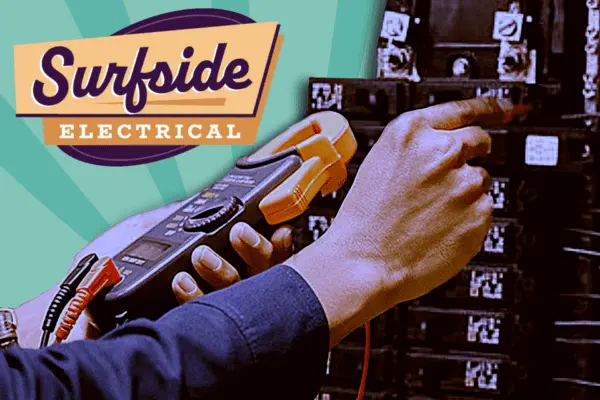The One Call That Books it All
Offering HVAC, Electrical, Plumbing, and more, Surfside Services is the only call you have to make for your home's service needs. We're here to repair and maintain nearly every aspect of your home, and we're trusted to do this because of our stellar reputation. Our customers know that we have fair pricing and stand behind our work.

Ready to cool off? Our HVAC technicians are the best in the business!
No One Else Quite Like Us
There is no other local company providing the range of professional services that we do. With licensed and experienced experts in multiple fields, we're able to offer comprehensive solutions that our competitors just can't match.
Needing a regular/maintenance or deep clean today?
Keepin' it Tidy
After major projects like re-pipes and remodels, rest assured we'll put everything back in order. From repairing the walls to professionally cleaning up after ourselves, we'll totally restore your space back to normal.
No One Else Quite Like Us
There is no other local company providing the range of professional services that we do. With licensed and experienced experts in multiple fields, we're able to offer comprehensive solutions that our competitors just can't match.
Upfront Pricing
We provide upfront pricing before performing any services. You'll always know the cost before you commit. It's important to us to offer affordable, clearly-defined services.
Workmanship Guarantee
Without question, we stand behind our work. Our reputation means everything to us, and we work hard to protect it by always providing the best service.
Keepin' it Tidy
After major projects like re-pipes and remodels, rest assured we'll put everything back in order. From repairing the walls to professionally cleaning up after ourselves, we'll totally restore your space back to normal.
Ready to keep the power on?
Total Comfort
From generators keeping the power on to professional cleaning services, not everything we do is about repairing something broken. We're interested in providing leisure and comfort where we can to improve your quality of life. From saving time to just spoiling yourself, we've got you covered.

Are you ready for the holidays?
Sometimes It's Just for Fun
Not everything has to be so serious. When you need a critical repair, we're here for you, but we're also here for the fun stuff. Landscaping, holiday lighting, and other services we offer are just about the sheer joy of it.
Surfside Services
A New Kind of Service Company
We are 'The One Call That Books It All', with individual masters of their craft in every division. It's not the same people doing everything: it's highly trained professionals comprising each department, but all under the same trusted brand and service philosophy of excellence.
About Us
Surfside is a multi-faceted service company providing everything from air conditioning services to landscaping. With multiple professional licenses and individual experts within each division, we are uniquely suited to bring a wide variety of services conveniently under one brand. Whether it is for an AC repair in Mobile AL or a plumbing service in Foley AL, it's all just one phone number and one trusted company.
You know that with us you are in good hands by reading about us online. Customer reviews are the best place to start and ours tell the story of our team's excellent customer service, workmanship, and integrity. And that's because our team cares about this company and our customers, and because they care is why a portion of this company is employee owned.
To learn more about us or to meet our team just give us a call. We'd love to speak with you and take a look at any home service need you may have.












